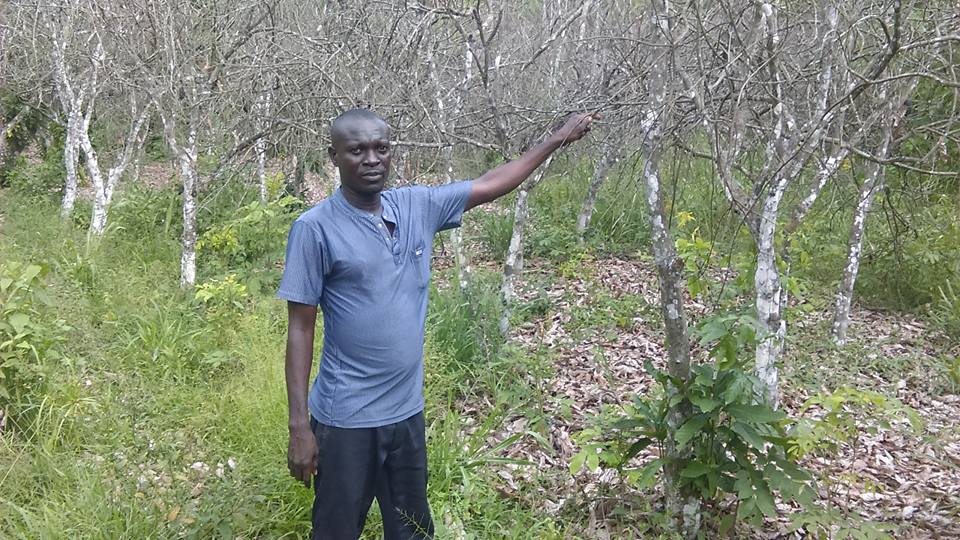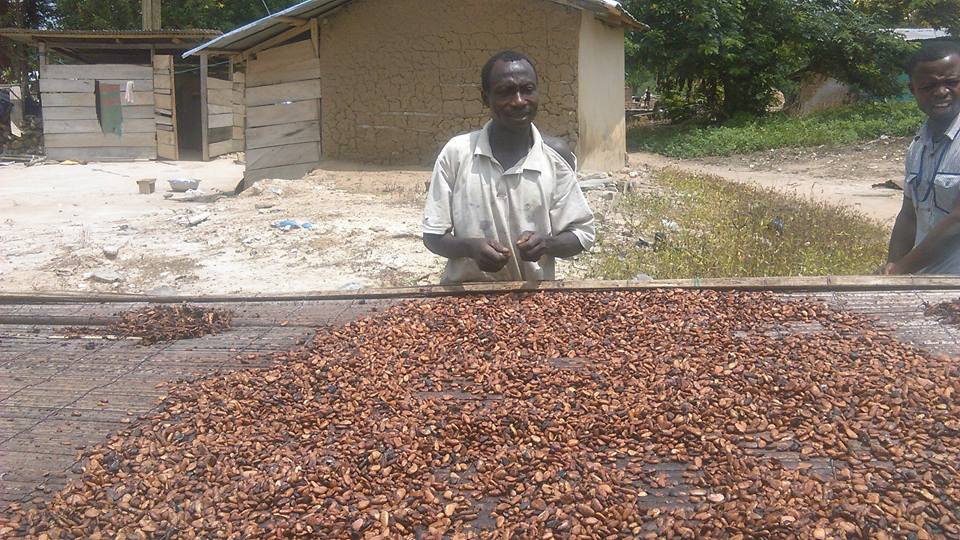 Drought, heat and the current temperature level have destroyed 211 hectares of cocoa trees in the Atwima Mponua District.
Drought, heat and the current temperature level have destroyed 211 hectares of cocoa trees in the Atwima Mponua District.
The erratic rainfall and heat has affected cocoa production in some cocoa producing communities within the first five months of 2016.
211 hectares of Cocoa trees have died out due to bad weather; the situation is worrisome and posed as a treat to Ghana’s dream of attaining 1million metric tons of cocoa produce.
The fortune of Ghana’s cocoa production hangs in balance, as its cocoa sector is confronted with heat and drought in some districts in the Ashanti region.
This is because the weather and climate influence most of the processes involved in cocoa production.
The affected communities include Nkrumah Nkwanta and Amadaa and its surrounding villages.
At the time of our visit to the farms, 211 hectares of cocoa trees have dried up and died completely, which the farmers are attributing it to the climate change impact.
We spoke to four cocoa farmers each have between 14-22 hectares of cocoa land.
Narrating their stories to gardjagh.org, they were astonished about the current development, “we have farmed on this land for more than 20 years and we haven’t experience any drought before”.
Cocoa is very sensitive to changes in climate, particularly to temperature.
Some alluded that the sandy and clay nature of the land might have contributed to the current state of their cocoa trees in the said farming communities
 Mr. Yaw Frimpong who has 14 hectares of cocoa farm told gardja org that, since the beginning of this year, he has not harvested from his 14 hectares cocoa plantation due to the drought level.
Mr. Yaw Frimpong who has 14 hectares of cocoa farm told gardja org that, since the beginning of this year, he has not harvested from his 14 hectares cocoa plantation due to the drought level.
Sharing his ordeal, Mr.David Asamoah, said following the drought, his 20 hectares cocoa farm could not fetched him 2 bags of cocoa beans, he used to harvest 17-20 bags during cocoa main crop, but the situation is now making life unbearable for him and his five families.
 The District Cocoa Officer at Nkawie COCOBOD division Mr. Owusu Appiah admitted that the climate change has indeed killed the dreams of 72 farmers in the area, as their large tract of cocoa farms been destroyed.
The District Cocoa Officer at Nkawie COCOBOD division Mr. Owusu Appiah admitted that the climate change has indeed killed the dreams of 72 farmers in the area, as their large tract of cocoa farms been destroyed.
The absence of enough trees to shade and protect the cocoa trees from drought and heat is also a key factor, Mr. Owusu hinted.
COCOBOD has moved in to assist the farmers replant all the affected cocoa trees, with more cocoa seedlings.
Cocoa farmers at Atia in the Ejisu-Juaben Municipality have also complained about the untimely supply of cocoa inputs by the government.
Cocoa production has declined from 1million metric tons to a little over 6 hundred metric tons and the government is putting in much effort to increase it to 850 metric tons this year.
The cocoa mass spraying exercise intervention which seeks to cushion the cocoa production now faces major challenges as farmers says they had their cocoa farms sprayed once in a year instead of thrice a year.
The situation, they describe as unpardonable and have had negative effect on the country’s cocoa production, couple with the harsh drought this year.




